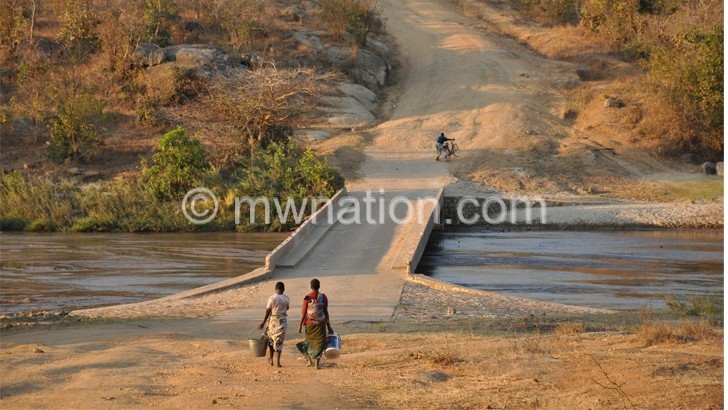Bitter wait for sweetie
At Zubayumo Village in Mzimba, jobless men trekking to South Africa are its hope.
They flee from poverty, leaving their wives and children for months and years.
“Energetic men keep going abroad so that their families can live in comfort,” says area development committee chairperson Jacob Phiri.
The locals call the rural setting a small Johannesburg.
Zubayumo is dominated by magnificent brick houses marked with glistening iron sheets, solar power, modern television sets, smart phones and other niceties from South Africa.
“The youthful migrants are the village’s future, but they leave behind shaky marriages. Their sexually active wives cannot stand lengthy spells without them,” Phiri says.

Risky DIY
Some of the women lose lives and uteruses while terminating unintended pregnancies using coat hangers, sticks, toxic herbs, washing powder and drug overdoses.
Unsafe abortions expose women to complications that sometimes result in deaths and disabilities.
Call her Mary because she wants no-one to know about it. She was hospitalised at Mzimba District Hospital for over a week having admittedly terminated her pregnancy using a sharp stick. She suffered profuse bleeding and medics had to operate on her punctured uterus.
“It was suicidal,” she says. “But I had no time to waste or money for a safe procedure. I had to save my marriage.”
Worrisome numbers
Penal laws adopted in 1925 restrict abortion except when a pregnant woman’s life is in danger. But they still happen unsafely and clandestinely.
Hospitals in Mzimba South treated about 30 50 post-abortion patients between 2013 and 2016, the second-highest burden in the North where Karonga was top of the pack at 3676.
“Emigration is a big problem. Some spend years abroad. Their wives resort to secret sexual affairs, but they have to save their marriages,” says district health officer Dr Lumbani Munthali.
Most unsafe abortions are recorded around Christmas and Easter when men return, health workers say.
Every year, hospitals across the country spend almost K300 million treating about 70 000 cases unsafe abortion, the Ministry of Health reported in 2009.
The study showed about 20 000 complications are caused by induced abortions. This kills 17 women in every 100 dying of pregnancy-related conditions.
Call for reforms
“The costs could be lower if the laws were liberalised,” says Flemings Nkhandwe, who heads the health taskforce at Coalition for Prevention of Unsafe Abortion.
But proposals to expand grounds for safe and legal abortion are slowed down by cultural and religious ideologies.
On December 6, some churches held protests against the tabling of suggested amendments in Parliament.
Government hastily disowned a bill drafted by a Special Law Commission empanelled in 2015.
New evidence
But unsafe abortions are not coming to an end.
Today, the College of Medicine (CoM) and Guttmacher Institute, a US reproductive health think-tank, will unveil findings that indicate higher incidence of the third highest cause of maternal deaths.
Dr Ausbert Msusa, a co-researcher based at CoM, has the figures under wraps.
But he says the new evidence offers “a call to action” as women and girls face deadly complications of backstreet abortions.
In December, Msusa attended the Africa Regional Conference on Abortion in Ethiopia where experts called for a shift from research to policy.
He urges policymakers in Malawi to emulate the example of Ethiopia where Minister of Health, Yifru Berhan Mitke spoke of “a decade of success” as scrapping of restrictive abortion in 2006 has reduced maternal mortality rates to just 10 percent from 32 percent in 2005.
“Clearly, Ethiopia accepted that the problem is real and did something about it. But Malawi seems to be in denial. Unsurprisingly, we have left this critical sexual and reproductive health issue in the hands of non-medical people who have not accepted change,” says Msusa.
Hard choices
Mary was 17, a year below the legal marriageable age, when she quit school because her parents had received money and other gifts from a man she had never seen.
She cohabited with her migrant suitor for a month when he impregnated her and vanished to South Africa.
The baby was three years old when she survived the suicidal abortion.
“The man has never seen the boy except the photographs that I send on phone,” she says.
She reportedly gets phone calls and money sporadically, but she cannot walk away because her parents cannot repay the cows they received for the arranged marriage.
But she has serious buts.
“I am young. I have desires. I don’t know whether he married. But loneliness leaves us with hard choices.”





